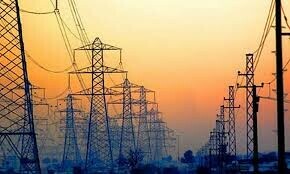LIMA: The movers and shakers of the world economy are trying to close in on the magic number of $100 billion a year to fight climate change as they meet this week in Peru.
But with the world well shy of that target, everyone seems to think the rest of the money should come from somewhere else.
The global talks on fighting climate change have stumbled over the issue of getting money to the countries that are most vulnerable to global warming and often least responsible for causing it.
Take a look: Rich states can’t meet 2020 climate aid goal alone
Wealthy nations have pledged to come up with $100 billion a year by 2020, but with two months to go to clutch United Nations climate talks, a new report this week found the world is less than two-thirds of the way there.
French Finance Minister Michel Sapin, whose country will host the December talks, said Thursday that governments have given pretty much all they can, and called on institutions like the World Bank and European Investment Bank to step up.
“That will be decisive, because they haven’t done a lot,” he told journalists on the sidelines of the IMF and World Bank annual meetings, which have gathered finance ministers and central bank chiefs from 188 countries. “If we want the Paris conference to be a success, the question of funding has to be nine-tenths settled, if not 100 per cent,” said Sapin.
On Wednesday, US Secretary of State John Kerry also singled out the World Bank and company, saying: “The United States looks to the multilateral development banks to set ambitious targets for scaling up mitigation and adaptation finance” at the Peru meetings.
The OECD calculated this week that wealthy countries came up with $61.8bn in climate funding last year, including $23.1bn in bilateral deals between countries, $20.4bn from multilateral institutions and $16.7bn from the private sector.
But while development banks could indeed do more, governments should not be let off the hook, climate experts say.
“Multilateral institutions can do more, but countries must also do more,” said UN Secretary General Ban Ki-moon’s point man on climate change, Under-Secretary General Janos Pasztor.
International charity Oxfam’s climate policy expert Isabel Kreisler echoed that view, saying: “Both the multilateral banks and governments should pay more.”
Responding to such appeals, the Inter-American Development Bank pledged on Thursday to increase climate finance from about 14pc of lending to between 25 and 30pc by 2020.
And the ADB announced last month it would increase climate finance from $3bn to $6bn, directing 30pc of its lending toward green projects.
Pierre Moscovici, the European commissioner for economic and financial affairs, meanwhile said he would pile “positive pressure” on EU members to rise to the occasion in Peru, particularly the 10 countries that have yet to make pledges on climate funding ahead of the Paris talks.
But is $38.2bn more even enough?
Some activists are critical of the OECD’s calculations, saying part of the $61.8bn in climate funding it reported should not have been counted.
“All that glitters isn’t gold,” Oxfam’s Kreisler told AFP.
She said supposedly “green” funding such as agricultural projects had been counted even when not directly linked to fighting climate change.
Published in Dawn, October 10th , 2015
On a mobile phone? Get the Dawn Mobile App: Apple Store | Google Play











































